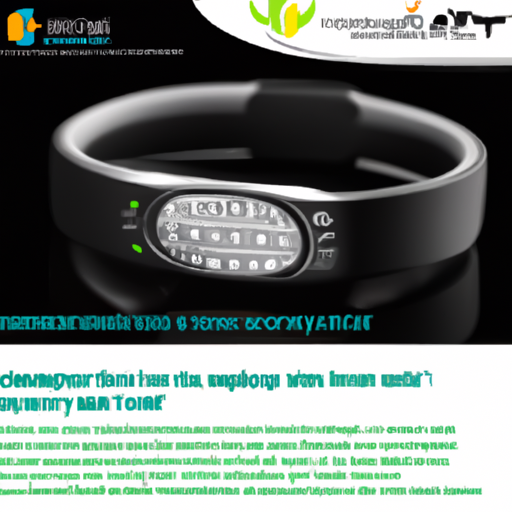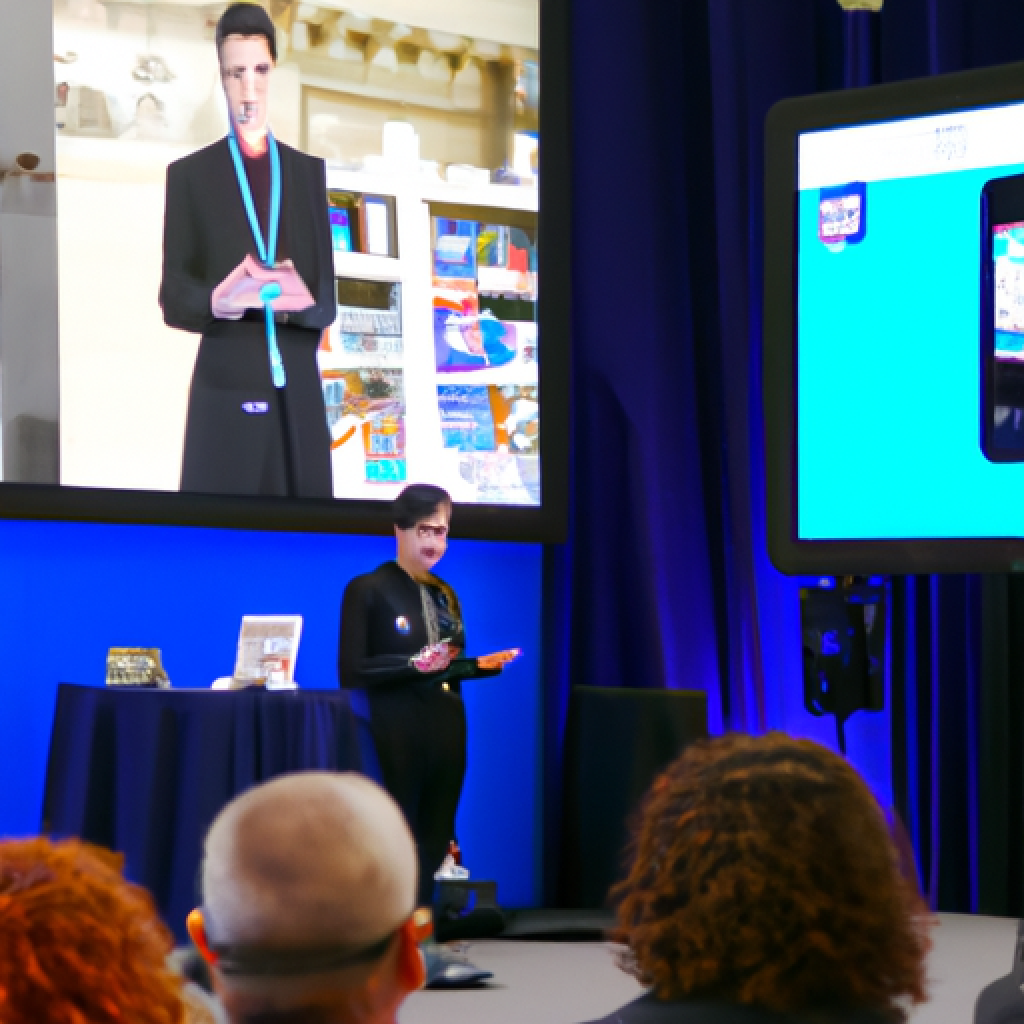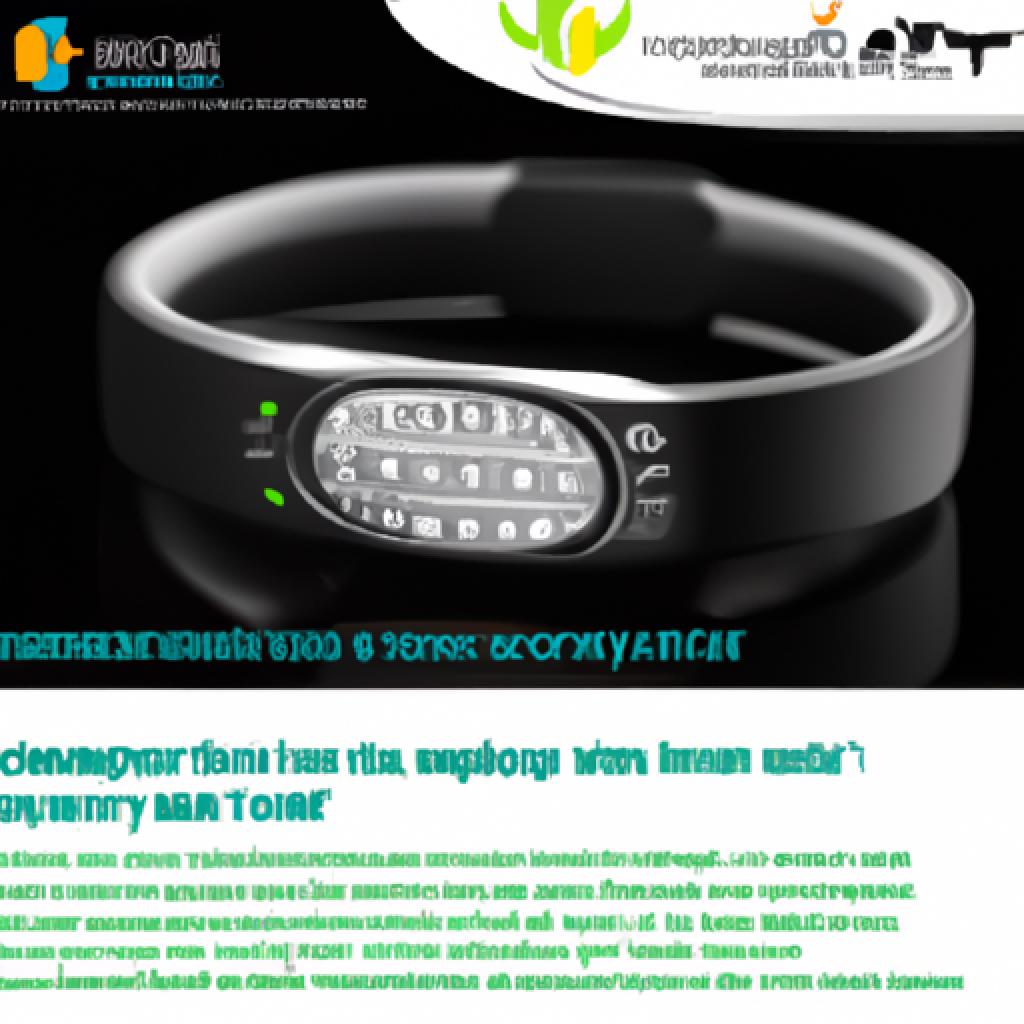Which Wearable Tech Is Best?

So, you’re on the hunt for some new wearable tech, huh? Well, you’ve come to the right place. In this article, we’re going to tackle the age-old question: “Which wearable tech is best?” It seems like every week there’s a new gadget hitting the market, promising to revolutionize our lives. But with so many options out there, it can be downright overwhelming trying to figure out which one is the right fit for you. But fear not, my friend, because I’ve done the research for you and I’m ready to dish out all the details on the best wearable tech options currently available. Get ready to strap on your smartwatches and plug in your earbuds, because we’re about to dive into the world of wearable tech.

Understanding Wearable Technology
Definition of Wearable Technology
Wearable technology refers to electronic devices or gadgets that can be worn on the body as accessories, clothing items, or even implants. These devices are designed to collect, process, and display data, enhancing human experiences and interactions with technology. They often incorporate sensors, connectivity features, and advanced functionalities to monitor various aspects of our lives, including health, fitness, and communication.
Importance and Uses of Wearable Tech
The importance of wearable technology lies in its ability to seamlessly integrate into our daily lives, providing us with valuable insights and convenience. Wearable tech devices are widely used for tracking health and fitness metrics, such as heart rate, steps taken, and sleep patterns. They also allow us to stay connected by receiving notifications from our smartphones, making calls, sending messages, and even accessing apps and music directly from our wrists.
Moreover, wearable technology has seen applications in various industries, such as sports, healthcare, fashion, and entertainment. Athletes and fitness enthusiasts can use wearables to optimize their training routines, monitor performance, and improve recovery. In healthcare, wearable devices can aid in remote patient monitoring, early detection of health issues, and medication adherence. Wearable tech has also revolutionized the fashion industry by combining stylish designs with smart features, allowing users to express themselves while staying connected.
History and Evolution of Wearable Tech
The history of wearable technology dates back to the 1960s, when the first wearable computer was developed by Professor Edward Thorp. This device, known as the “wearable computer shoe,” was designed to predict roulette outcomes in casinos. In the following decades, wearable tech continued to evolve and gain popularity.
In the 1980s, the invention of the digital watch marked the beginning of mainstream wearable technology. As technology advanced, more sophisticated wearable devices, such as pagers and early fitness trackers, emerged in the 1990s and 2000s. However, it was not until the early 2010s that wearable technology truly took off with the introduction of smartwatches and fitness trackers that seamlessly integrated with smartphones.
Since then, wearable tech has undergone rapid advancements in terms of design, functionality, and wearability. From bulky and limited devices, it has transformed into sleek, powerful gadgets that blend seamlessly with our fashion choices. Today, wearable technology continues to evolve, with innovations such as smart jewelry, smart clothing, and virtual reality headsets entering the market.
Different Types of Wearable Technology
Smartwatches
Smartwatches are wrist-worn devices that offer a range of functionalities beyond simply telling time. They can connect to smartphones and provide notifications, allowing users to stay updated without constantly checking their phones. Smartwatches often include features like fitness tracking, heart rate monitoring, GPS navigation, music control, and even contactless payments.
Fitness Trackers
Fitness trackers, also known as activity trackers or fitness bands, are devices designed specifically for monitoring and tracking physical activity and health-related metrics. These wearables typically track steps taken, distance traveled, calories burned, and sleep patterns. They can be worn on the wrist, clipped to clothing, or even attached to shoes, providing valuable insights for those looking to improve their fitness or maintain a healthy lifestyle.
Smart Jewelry
Smart jewelry combines fashion with technology, offering discreet and stylish wearable devices. These accessories can track fitness metrics, receive notifications, and even provide safety features such as emergency alerts or self-defense capabilities. Smart rings, bracelets, and necklaces are popular choices for individuals who want to prioritize both functionality and aesthetics.
Smart Clothing
Smart clothing incorporates technology directly into garments, allowing for seamless tracking and monitoring without the need for additional accessories. This includes items like smart shirts, leggings, socks, and even shoes. These clothing items often integrate sensors to measure biometrics, track movement, and provide real-time feedback to enhance performance during physical activities.
VR/AR Headsets
Virtual Reality (VR) and Augmented Reality (AR) headsets offer immersive experiences by creating virtual or augmented environments. VR headsets provide a complete virtual world, while AR headsets overlay digital information onto the real world. These wearable devices allow users to explore virtual spaces, play interactive games, and even assist in professional tasks like training simulations or architectural visualization.
Healthcare Devices
Healthcare devices encompass a wide range of wearables designed to monitor and manage health conditions. These devices can track vital signs like heart rate, blood pressure, or glucose levels, helping individuals and healthcare professionals keep a close eye on their well-being. Additionally, health-monitoring wearables may include features such as medication reminders, fall detection, or emergency alerts to improve overall safety and quality of life.
Popular Brands of Wearable Technology
Apple
Apple is a leading brand in the wearable technology market, offering a range of smartwatches and fitness trackers under the Apple Watch series. Known for their sleek designs, intuitive interfaces, and seamless integration with other Apple devices, Apple Watches have become synonymous with the smartwatch industry. The Apple Watch provides a comprehensive set of features, including fitness tracking, ECG monitoring, cellular connectivity, and a wide variety of apps.
Fitbit
Fitbit is a renowned brand specializing in fitness trackers and smartwatches. Fitbit devices are highly popular due to their accuracy, extensive fitness tracking capabilities, and user-friendly interfaces. Fitbit’s range of wearables caters to different needs, from basic fitness tracking to advanced health monitoring. With features like sleep tracking, heart rate monitoring, and personalized workout guidance, Fitbit devices aim to empower individuals to lead healthier lives.
Samsung
Samsung offers a diverse collection of wearable devices, including smartwatches and fitness trackers. The Galaxy Watch series stands out with its vibrant displays, robust fitness tracking features, and compatibility with both Android and iOS devices. Samsung’s wearables also incorporate advanced functionalities such as GPS navigation, music streaming, and contactless payments. The brand emphasizes a blend of style, convenience, and practicality in its wearable tech offerings.
Garmin
Garmin is a well-established brand in the sports and fitness industry, renowned for its high-performance wearable devices. Garmin’s smartwatches and fitness trackers cater to athletes, outdoor enthusiasts, and fitness enthusiasts alike. These devices are equipped with robust GPS tracking, advanced activity sensors, and specialized features for various sports and activities. Garmin wearables are known for their durability, long battery life, and comprehensive training metrics.
Xiaomi
Xiaomi, a Chinese tech giant, has made a significant impact in the wearable technology market with its affordable and feature-rich devices. The Mi Band series from Xiaomi offers budget-friendly fitness trackers with impressive tracking capabilities, including heart rate monitoring, sleep tracking, and water resistance. Xiaomi wearables focus on simplicity, user-friendly interfaces, and long battery life, making them accessible to a wide range of individuals seeking to monitor their health and fitness.
Huawei
Huawei is a global leader in technology, known for its innovative smartphones and wearable devices. The Huawei Watch series offers stylish smartwatches that combine elegant designs with advanced functionalities. These wearables boast features like comprehensive fitness tracking, heart rate monitoring, NFC payments, and standalone connectivity. Huawei’s wearables integrate seamlessly with their smartphones, allowing for a cohesive ecosystem and enhanced user experience.
Analysing Best Smartwatches
Overview of Smartwatches
Smartwatches have become increasingly popular due to their versatility and convenience. These devices offer a range of features beyond just timekeeping, making them an essential accessory for tech-savvy individuals. Smartwatches can display notifications, track fitness metrics, control music, and even act as a standalone communication device. When selecting the best smartwatch, several factors come into play, including design, performance, battery life, and health features.
Detailed Review – Apple Watches
Apple Watches have consistently ranked among the best smartwatches available. The latest Apple Watch Series combines sleek aesthetics with cutting-edge technology. The devices feature stunning OLED displays, smooth user interfaces, and seamless integration with other Apple devices. With features like the ECG app, blood oxygen monitoring, and advanced fitness tracking capabilities, Apple Watches excel in health-oriented features. Additionally, the Apple Watch boasts cellular connectivity, enabling users to stay connected even without their smartphones.
Detailed Review – Samsung Watches
Samsung offers an impressive lineup of smartwatches that cater to a wide range of users. The Galaxy Watch series stands out with its vibrant displays, durable construction, and comprehensive fitness tracking features. Samsung watches run on the Tizen operating system, offering a distinct user interface and seamless integration with Samsung smartphones. With features like sleep tracking, heart rate monitoring, and advanced workout tracking, Samsung watches provide versatile options for users seeking an all-in-one wearable device.
Parameters for Evaluation – Design, Performance, Battery Life, Health Features
When evaluating smartwatches, several parameters play a crucial role in determining their quality and usability. Design considerations include factors such as display quality, materials used, and overall aesthetics. Performance encompasses aspects like smoothness of operation, responsiveness, and the speed of app loading. Battery life is an essential factor, as longer battery life ensures uninterrupted usage. Lastly, health features like heart rate monitoring, sleep tracking, and fitness tracking accuracy are critical for individuals prioritizing their well-being.

Analysing Best Fitness Trackers
Overview of Fitness Trackers
Fitness trackers have gained immense popularity for their ability to help individuals track and analyze their physical activity and overall well-being. These wearables provide insights into steps taken, calories burned, sleep quality, and other health-related metrics. When considering the best fitness tracker, it is essential to evaluate factors such as tracking abilities, accuracy, battery life, and comfort.
Detailed Review – Fitbit Devices
Fitbit is a pioneer in the fitness tracker industry and offers a diverse range of devices tailored to various needs. Fitbit devices excel in accurate fitness tracking, providing users with detailed insights into their daily activities. With features like heart rate monitoring, sleep tracking, and personalized workout guidance, Fitbit wearables empower users to make informed decisions about their health and fitness. Fitbit devices are also known for their long battery life and comfortable designs, ensuring a seamless tracking experience.
Detailed Review – Garmin Devices
Garmin is renowned for its high-performance devices designed for athletes and outdoor enthusiasts. Garmin fitness trackers provide advanced activity tracking, including specialized features for various sports and activities. These wearables offer comprehensive training metrics, accurate GPS tracking, and robust durability. Additionally, Garmin devices have long battery life, making them suitable for extended outdoor adventures. Comfort is another area where Garmin excels, with ergonomic designs and adjustable straps for a comfortable fit during prolonged wear.
Parameters for Evaluation – Tracking Abilities, Accuracy, Battery Life, Comfort
When evaluating fitness trackers, tracking abilities and accuracy are crucial for obtaining reliable data. The device should accurately measure steps taken, distance traveled, calories burned, and sleep patterns. Battery life is essential, especially for individuals who want continuous tracking without frequent recharging. Comfort is another consideration, as fitness trackers are worn for extended periods. It is essential to choose a device that feels comfortable on the wrist and does not hinder everyday activities or workouts.
Analysing Best Healthcare Devices
Overview of Healthcare Devices
Healthcare devices play a vital role in monitoring and managing health conditions. These wearables provide valuable data for individuals and healthcare professionals, aiding in early detection, prevention, and treatment of various health issues. When evaluating healthcare devices, parameters such as accuracy, comfort, data interpretation, and medical approval are crucial.
Detailed Review – Withings Devices
Withings is a well-known brand that offers a range of healthcare devices designed to monitor and improve overall wellness. Withings devices excel in accuracy, providing reliable data for vital signs, sleep patterns, and other health metrics. These wearables are comfortable to wear and feature user-friendly interfaces for easy interpretation of data. Withings devices also often receive medical approval, indicating their reliability and adherence to healthcare standards.
Detailed Review – AliveCor Devices
AliveCor specializes in cardiac health monitoring devices, particularly focused on providing reliable ECG readings. AliveCor wearables, such as the KardiaMobile device, allow individuals to take ECGs easily and accurately from their wrists. The devices integrate seamlessly with smartphones, providing instant access to comprehensive heart health information. AliveCor devices receive medical approval, demonstrating their accuracy and potential for use by healthcare professionals.
Parameters for Evaluation – Accuracy, Comfort, Data Interpretation, Medical Approval
Accuracy is paramount in healthcare devices, as reliable data is crucial for monitoring health conditions. The device should provide precise measurements of vital signs or specific health parameters. Comfort is essential, as wearables are often worn continuously or for prolonged periods. Data interpretation should be user-friendly, allowing individuals to understand their health metrics without the need for specialized knowledge. Lastly, medical approval provides an additional layer of trust, indicating that the device meets rigorous healthcare standards.

The Future of Wearable Technology
Predicted Trends
The future of wearable technology holds exciting possibilities. Predicted trends include the integration of artificial intelligence (AI) for more intelligent and personalized insights, the development of more flexible and stretchable materials for enhanced wearability, and the advancement of biometric sensors for even more accurate tracking of health metrics. Augmented reality (AR) and virtual reality (VR) are also expected to play significant roles in wearable tech, revolutionizing experiences in entertainment, education, and professional fields.
Challenges and Possible Solutions
While the potential of wearable technology is vast, there are challenges to overcome. Battery life remains a concern, as longer-lasting batteries are essential for uninterrupted usage. Wearability is another challenge, as devices must be comfortable, non-intrusive, and fashion-forward to encourage widespread adoption. Additionally, data privacy and security are paramount, requiring robust measures to protect personal information from unauthorized access or breaches.
Possible solutions to these challenges involve advancements in battery technologies, such as improved energy storage or alternative charging methods. Wearable tech companies can prioritize lightweight materials, ergonomic designs, and customizable options to enhance wearability. Data privacy and security concerns can be addressed through encryption, authentication protocols, and transparent privacy policies that prioritize consent and user control over data sharing.
Impact on Health, Fitness, and Lifestyle
Wearable technology has already made a significant impact on health, fitness, and lifestyle. These devices have empowered individuals to take control of their health by providing real-time feedback, personalized insights, and motivation to lead healthier lives. Fitness trackers and smartwatches have encouraged individuals to exercise more, monitor their heart health, and improve sleep habits. In healthcare, wearable devices have facilitated remote patient monitoring, enabling early detection of health issues and reducing hospital visits. Wearable tech has also influenced lifestyle choices, with fashionable smart jewelry and stylish smartwatches merging technology with fashion. Communication has become more streamlined, with notifications and calls easily accessible from the wrist. Additionally, AR and VR headsets have transformed gaming and entertainment experiences, immersing users in virtual worlds and providing interactive learning opportunities.
Privacy and Security Concerns with Wearable Tech
Data Privacy Risks
As wearable technology collects and processes personal data, privacy concerns become paramount. There is potential for data breaches, hacking attempts, or unauthorized access to sensitive information. Wearable device manufacturers must ensure robust security measures to protect user data, including encryption, secure authentication, and data anonymization. Additionally, transparent privacy policies, clear data consent mechanisms, and user control over data sharing are essential to alleviate privacy concerns.
Security Vulnerabilities
Wearable tech is not immune to security vulnerabilities. Weak encryption protocols, unsecured wireless connections, or outdated software can expose devices to potential attacks. Wearable device manufacturers must prioritize regular security updates, vulnerability testing, and collaboration with cybersecurity experts to identify and address any potential security loopholes. User education regarding secure device usage and best practices for protecting personal information can also help mitigate security risks associated with wearable technology.
Addressing Privacy and Security Concerns
To address privacy and security concerns, wearable device manufacturers should implement strong security protocols from the initial design stages. This includes integrating encryption mechanisms, secure authentication methods, and secure data storage practices. Regular software updates and patches should be provided to address any identified vulnerabilities promptly. Manufacturers should also prioritize transparent privacy policies, clearly outlining how data is collected, used, and shared. Additionally, user-friendly controls and options for data consent can provide individuals with a sense of control and trust in wearable technology.

Selecting the Right Wearable Tech for Your Needs
Understand Your Requirement
Before selecting a wearable tech device, it is crucial to understand your specific requirements. Determine the functionalities you need, such as fitness tracking, communication features, or health monitoring. Consider your lifestyle, fitness goals, and the activities you engage in regularly. Understanding your requirements will help narrow down the options and select a device that aligns with your needs and preferences.
Budget Consideration
Wearable technology comes in a wide price range, from budget-friendly options to high-end devices. Set a budget based on your affordability and evaluate the features offered by different devices within that price range. It is essential to strike a balance between cost and functionality, ensuring that you get the desired capabilities without overspending.
Compatibility with Other Devices
Consider the compatibility of the wearable device with other devices you already own. If you have a specific smartphone or operating system preference, ensure that the wearable device is compatible with your existing devices. Compatibility ensures a seamless experience and allows for better integration and synchronization of data.
Consideration of Additional Features
Evaluate the additional features offered by wearable devices beyond their core functionalities. Some devices offer advanced features like contactless payments, music control, or standalone connectivity. Consider which additional features are essential to you and align with your lifestyle. However, prioritize the core functionalities that initially led you to consider a wearable device.
Where to Buy Wearable Tech
Recommended Retailers
When purchasing wearable tech, several retailers offer a wide range of options and provide reliable service. Some recommended retailers include:
- Official brand stores: Purchasing directly from the official stores ensures authenticity and access to the latest models and updates.
- Electronics retailers: Stores like Best Buy, Fry’s Electronics, or MediaMarkt offer a variety of wearable devices from different brands, allowing for comparison and exploration.
- Online marketplaces: Websites like Amazon, eBay, or specialized online stores like the official brand websites offer a vast selection of wearable tech devices with customer reviews and ratings.
Considerations for Buying Online vs In-store
Deciding between online and in-store purchases depends on personal preferences and factors such as convenience, availability, and the ability to try on or test the device. Online purchases provide a wide range of options, often at competitive prices, and the convenience of doorstep delivery. In-store purchases allow for physical interaction with the device and the ability to seek expert advice from sales representatives. Consider factors such as warranty, return policies, and customer support when deciding between online and in-store purchases.
Warranty and Customer Support Services
When purchasing wearable tech, consider the warranty and customer support services offered by the manufacturer or retailer. Ensure that the device comes with a warranty that covers potential defects or malfunctions. Research the customer support reputation of the manufacturer or retailer, as timely and efficient support can prove invaluable if you encounter any issues during use.
In conclusion, wearable technology has become a significant part of our lives, providing us with valuable insights, convenience, and improved experiences. With various types of wearables available, including smartwatches, fitness trackers, smart jewelry, smart clothing, VR/AR headsets, and healthcare devices, individuals have a wide range of options to choose from. Leading brands like Apple, Fitbit, Samsung, Garmin, Xiaomi, and Huawei offer innovative and feature-rich wearable devices.
When selecting wearable tech, it is essential to consider factors such as design, performance, battery life, and health features. Understanding your requirements, setting a budget, considering compatibility, and evaluating additional features will help in choosing the right device. Privacy and security concerns need to be addressed through robust security measures, transparent privacy policies, and user control over data sharing. By making informed choices and following these considerations, individuals can find the best wearable tech device that complements their lifestyle and enhances their well-being.








